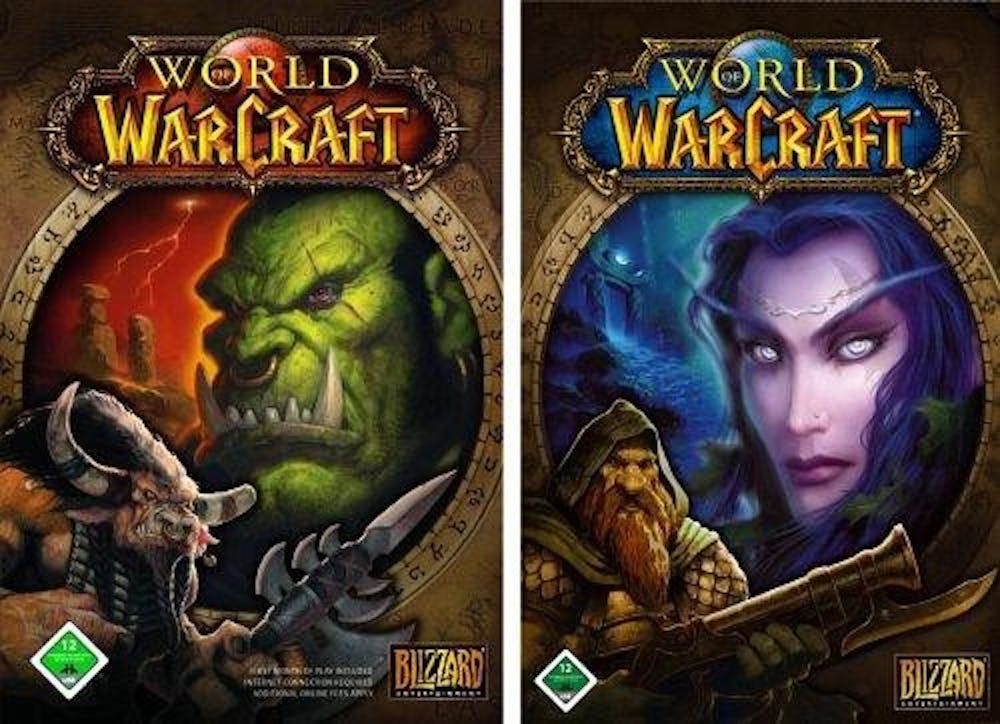Incoming! I’m OMWB and OOM!
For those of you who actually understood that, you’re not alone.
In fact, you may be part of a rapidly growing network of Massively Multiplayer Online Role Playing Game (MMORPG or MMO, for short) players who are changing the way people think about gaming and gamers — and who are showing the world that they are more than your average “noobs.”
According to Blizzard, the company behind “World of Warcraft,” that game had more than 12 million subscribers as of October 2010. While this may not seem like much compared to the 20 million copies of “Call of Duty: Modern Warfare 2” that have been sold, consider this: “WoW” requires every active player to pay a monthly fee of about $13-15 (depending upon the length of time for which they sign up). Add that up, and we’re looking at $100.2 million a month. Needless to say, it makes up for its sales deficit.
But what keeps these players paying month after month? Couldn’t they just buy a regular video game for a one-time price and be satisfied?
Dr. Edward Castronova from IU’s Department of Telecommunications has quite a bit of experience with MMORPGs. He studies them and teaches about them, and he has been a player since 2001.
“The social network is a strong glue, so that the game itself may become boring, but because you have friends it becomes fun,” he said.
Still, in today’s world, a lot of games are connected. From “Farmville” to “MW2,” there are social alternatives to expensive MMOs, and while the interactive aspects of these games may be attributed to the success of early MMORPGs, those games have not become archaic. The reason MMOs stand apart, Castronova said, is simple.
“You can’t spend a whole week in a ‘Call of Duty’ environment; you jump into a map, you jump out. In an MMO, you are actually walking though space and you can spend a week in an alternate world.”
The hook of MMORPGs, then, seems to lie in the experience, not the game itself. Players become part of an immersing social community online: they meet people, spend time with them, go on quests with them, and band together to form guilds, which Castronova said are comparable to fraternities or sports teams.
“Their online friendships are completely genuine, the same as in the real world,” he said.
Some IU students are getting involved with a different aspect of this phenomenon. “Londontown” is an MMORPG being developed through an entirely student-driven and volunteer effort at IU. Zach Mansfield, a fifth-year English major, is the associate producer of the project and has been with the project since fall 2009. One of the major goals of “Londontown” is to create a different kind of MMORPG in which each player can make his mark.
“In most MMOs, each player can’t feel like they are actually unique. With ‘Londontown,’ we are trying to make it so that you can have an effect in the world,” Mansfield said.
He said he thinks that in addition to the social aspect, MMOs are addictive because they offer the opportunity to advance.
“There is a drive to get better stuff and more of that stuff. It can be addicting to know there is something better out there you can go get,” he said.
The growing popularity of MMORPGs is leading to a gamer subculture in the real world. Castronova said that outside of the game, players are very sociable, smart and tech-savvy.
“Gamers are way more competent than the external world understands,” he said. “They are extremely bright, and I know this because the games they play are very complicated. I think among gamers, there is mutual understanding that they are very smart and misunderstood, and they have no patience or tolerance for the outside world.”
Mansfield looks at it in a slightly different way.
“It’s like an inside joke between friends but amongst the whole group of people that play that MMO,” he said.
Nevertheless, for some non-players, this culture may be hard to accept. The people who think they are close friends online have never even met, and the items are nothing but computer code.
But before writing off this group’s members as “nerds,” take a closer look. You create a profile of yourself to present to other members, you have friendships completely contained in a virtual world with people you hardly know, and you can invite these friends to go to events with you and join your groups. Sound familiar?
It’s just like Facebook.
Unique cultures arise in online RPGs

Get stories like this in your inbox
Subscribe





